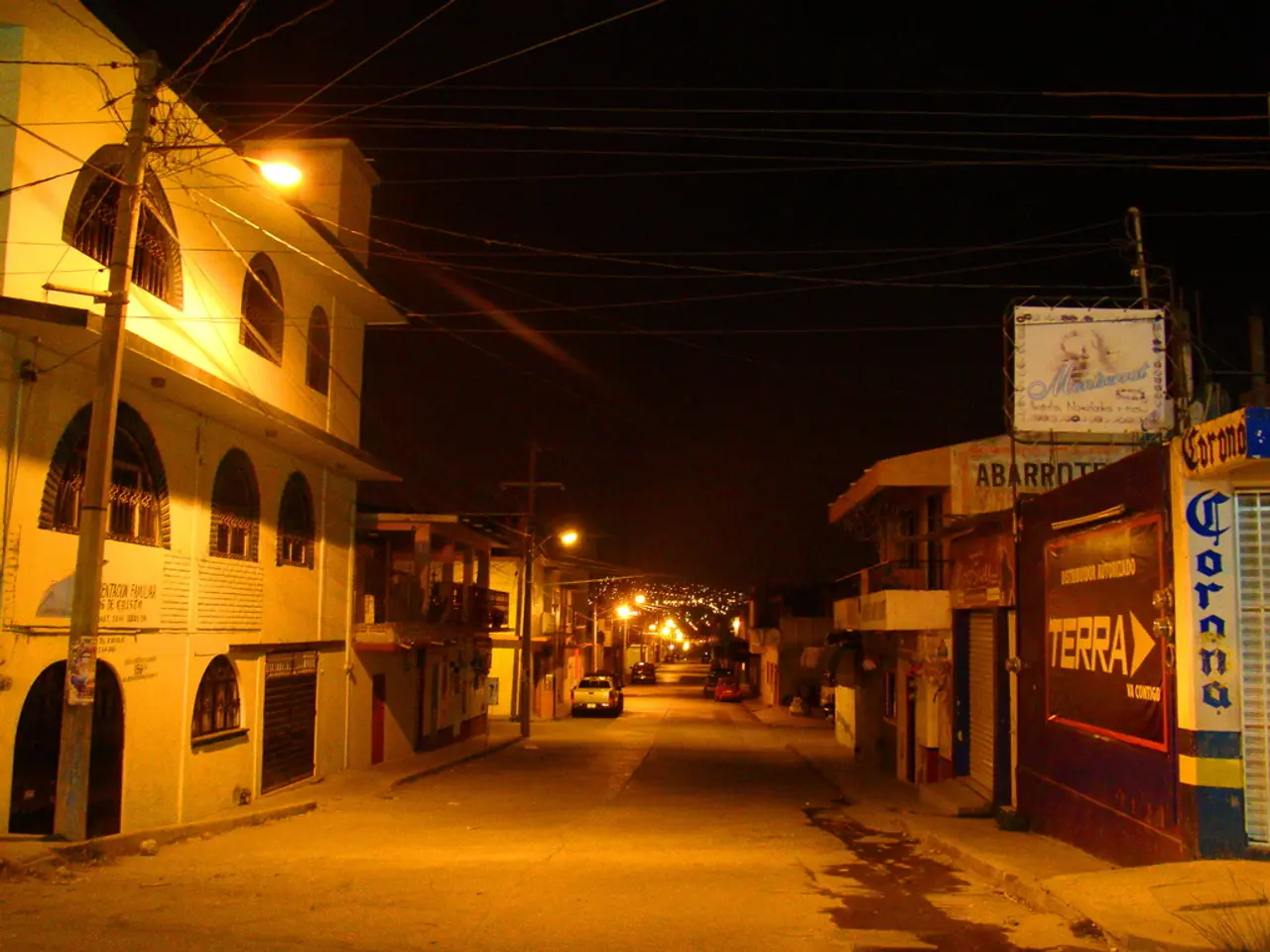Katherina Reiche spearheads the 'reshaping' of energy transformation efforts
In the heart of Europe, Germany's energy transition is under scrutiny as Economics Minister Katherina Reiche looks to reshape the nation's energy policy. The energy transition monitoring, a new initiative aimed at determining future electricity demand compatible with industrial structure preservation and grid expansion, has sparked debates among political leaders and experts.
High electricity prices in Germany have been harming the business location, with companies complaining about the still high electricity costs compared to international competitors. Reiche's desire for a reevaluation of energy expansion scenarios by the next federal government has gained support from the Chancellor and some allies, but the coalition partner SPD remains opposed.
However, concerns surrounding Reiche's energy policy mandate and its potential impact on the energy transition in Germany center on several key issues. One of the main points of contention is Reiche's skepticism about Germany’s established goal of achieving climate neutrality by 2045, instead favoring alignment with the EU’s 2050 target. This stance has raised concerns among SPD leaders who warn that revisiting the timeline risks undermining Germany’s credibility and its commitments to future generations.
Reiche's proposal to cap electricity prices for energy-intensive industries with state subsidies has also been met with criticism. Critics argue that this approach contradicts long-standing recommendations for more effective climate policies, potentially creating market distortions and reducing incentives for decarbonization. The selective relief offered under the new EU Clean Industrial Deal State Aid Framework has sparked debate due to uneven sectoral impacts and concerns about fairness and effectiveness.
The government's new mandate to monitor and analyze the status of the energy transition, linked to Reiche's policy leadership, is seen as having potentially far-reaching consequences. The details and implications of this monitoring are under scrutiny because they could influence how progress is tracked, how policies are adjusted, and ultimately how effectively Germany meets its energy transition goals.
Reiche's involvement in opposing the recommissioning of Russia's Nord Stream pipelines and pushing for government analyses on electricity demand and infrastructure readiness further highlights tensions within Germany’s energy policy landscape, reflecting the complexities of balancing energy security, affordability, and climate objectives.
As the debate continues, Reiche's demand for a "realignment of German energy policy" is expected to be presented by the end of August. The German Environmental Aid (DUH) has published a paper outlining requirements for Reiche's ministry's monitoring, expressing concerns about its potential impact on renewable energies. Reiche wants companies that profit from renewable energies to contribute to the costs of grid expansion, a proposal that has yet to be fully addressed.
The design of the monitoring raises eyebrows due to its ambitious timeline and focus on minimizing costs over accelerating the energy transition. Network charges for the maintenance and expansion of the power grid amount to billions of euros and make up around a quarter of the consumer electricity price. The BMWE requires the creators of the report to set up an "accompanying circle" consisting of scientists and people "from the energy industry practice," with the ministry reserving the right to have a say in the composition of this circle.
In this critical juncture for Germany's energy transition, the future direction of the country's energy policy remains uncertain, with the potential for significant implications for the nation's commitment to climate neutrality and its role as a global leader in renewable energy.
[1] Source: https://www.spiegel.de/wirtschaft/soziales/katherina-reiche-wird-umstritten-wegen-der-energiewende-a-7e8c5ddc-f8f0-46e9-a4c9-0e2490e9334e [2] Source: https://www.heise.de/newsticker/meldung/Katherina-Reiche-will-umstrittenes-Energiekonzept-umsetzen-4628986.html [3] Source: https://www.tagesspiegel.de/wirtschaft/energiepolitik-katherina-reiche-will-umstrittenes-energiekonzept-umsetzen/27495570.html [4] Source: https://www.tagesspiegel.de/politik/energiepolitik-katherina-reiche-will-umstrittenes-energiekonzept-umsetzen/27495570.html [5] Source: https://www.heise.de/newsticker/meldung/Katherina-Reiche-will-umstrittenes-Energiekonzept-umsetzen-4628986.html
- The controversy surrounding Economics Minister Katherina Reiche's energy policy proposals extends to various aspects of Germany's energy transition, including her skepticism about the nation's climate neutrality goal and her plan to cap electricity prices for energy-intensive industries with state subsidies, which some argue contravenes effective climate policies.
- The government's new energy transition monitoring, overseen by Minister Reiche, has raised concerns due to its focus on minimizing costs over accelerating the energy transition, as well as its potentially far-reaching consequences for policy adjustments and the tracking of progress towards energy transition goals.




